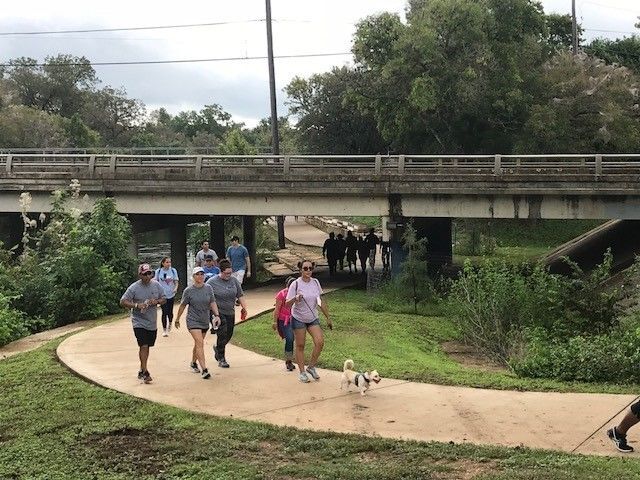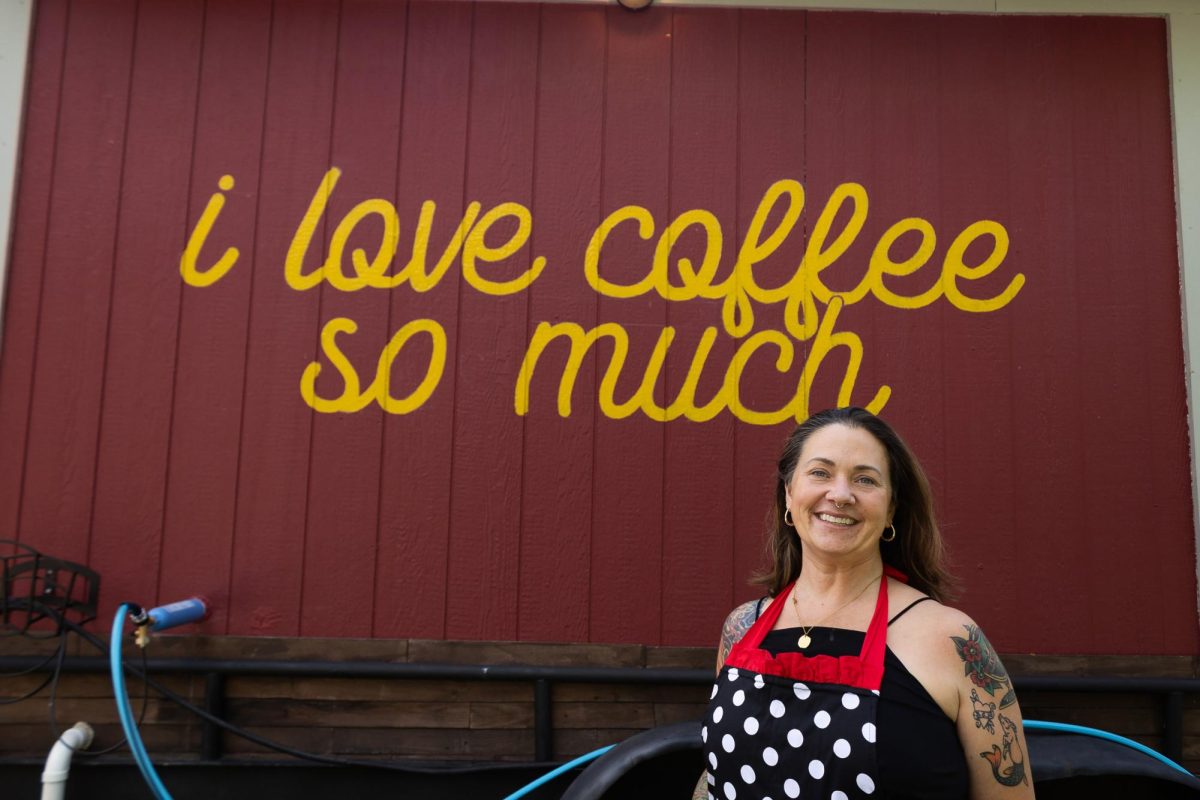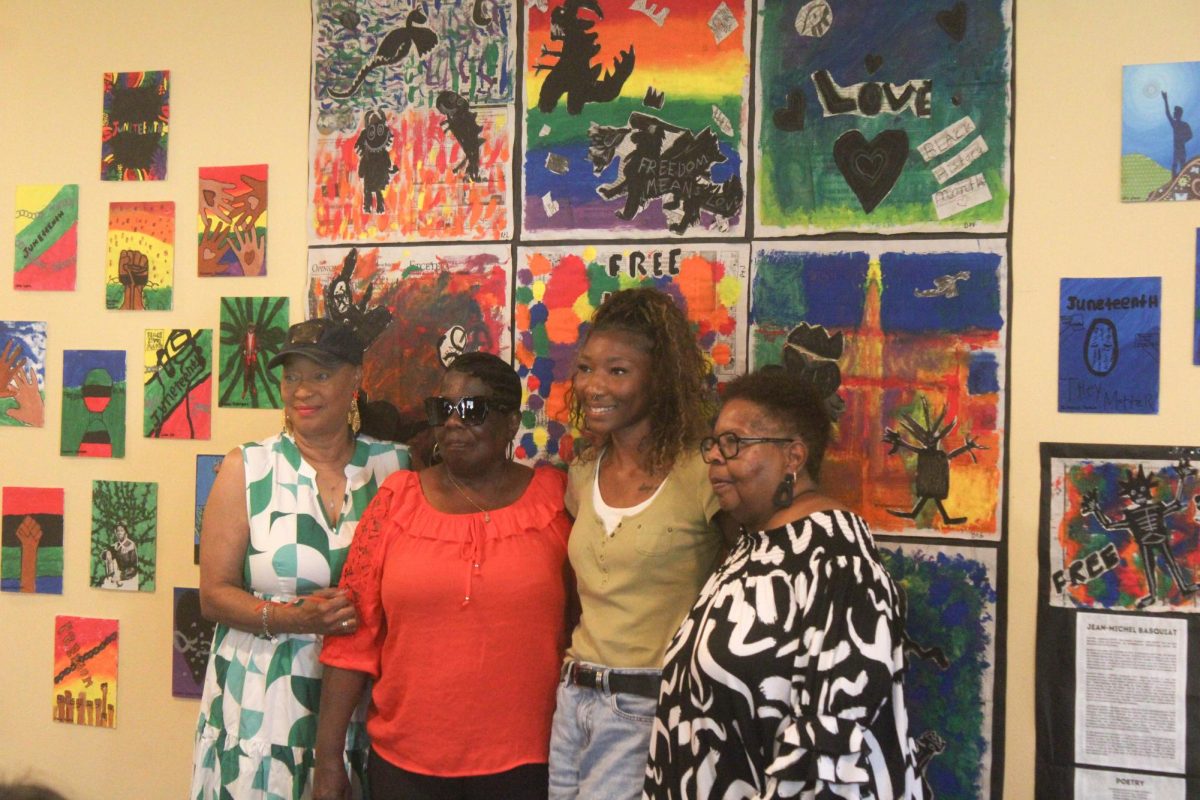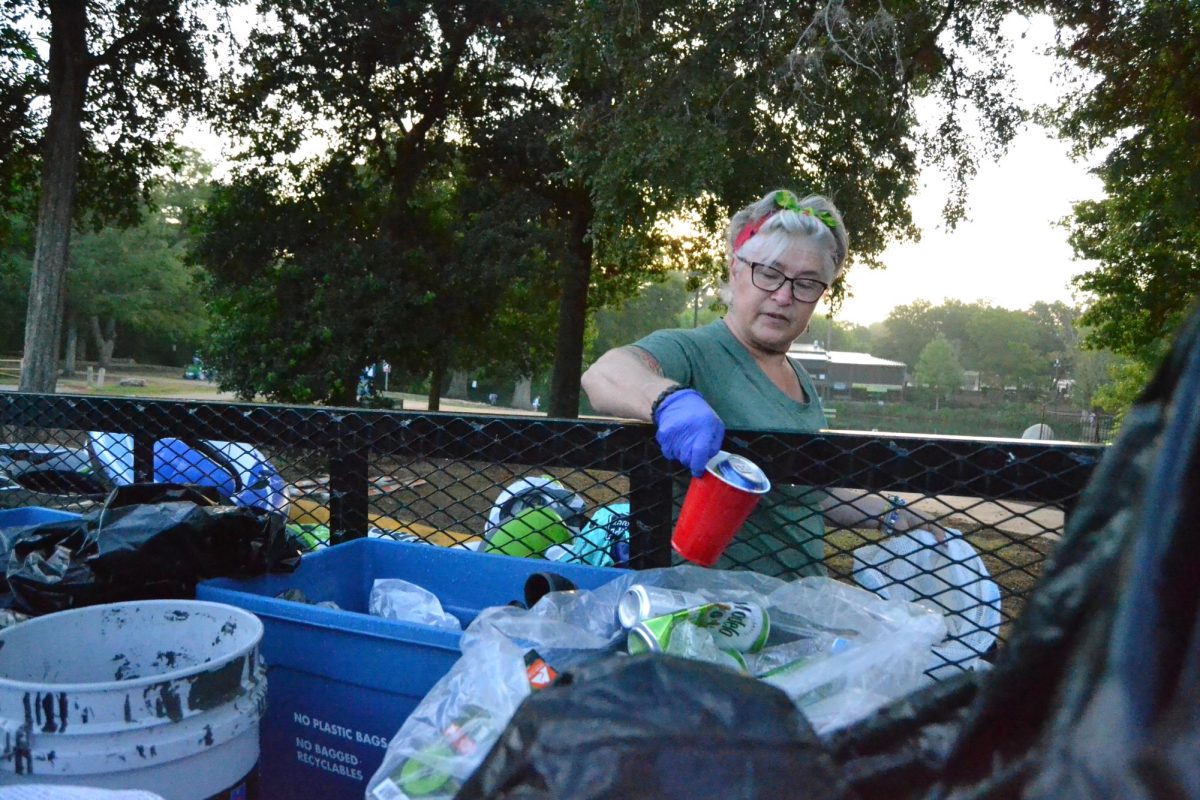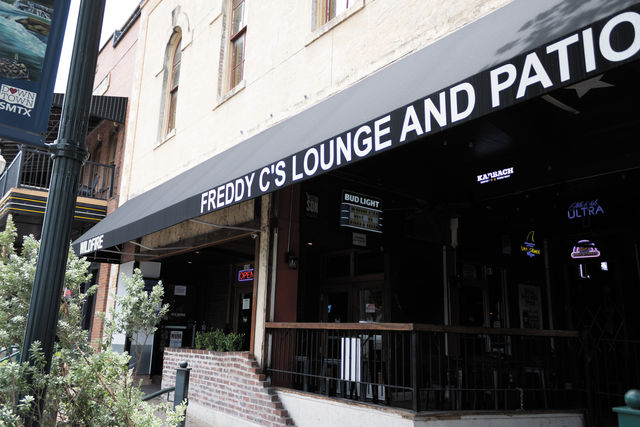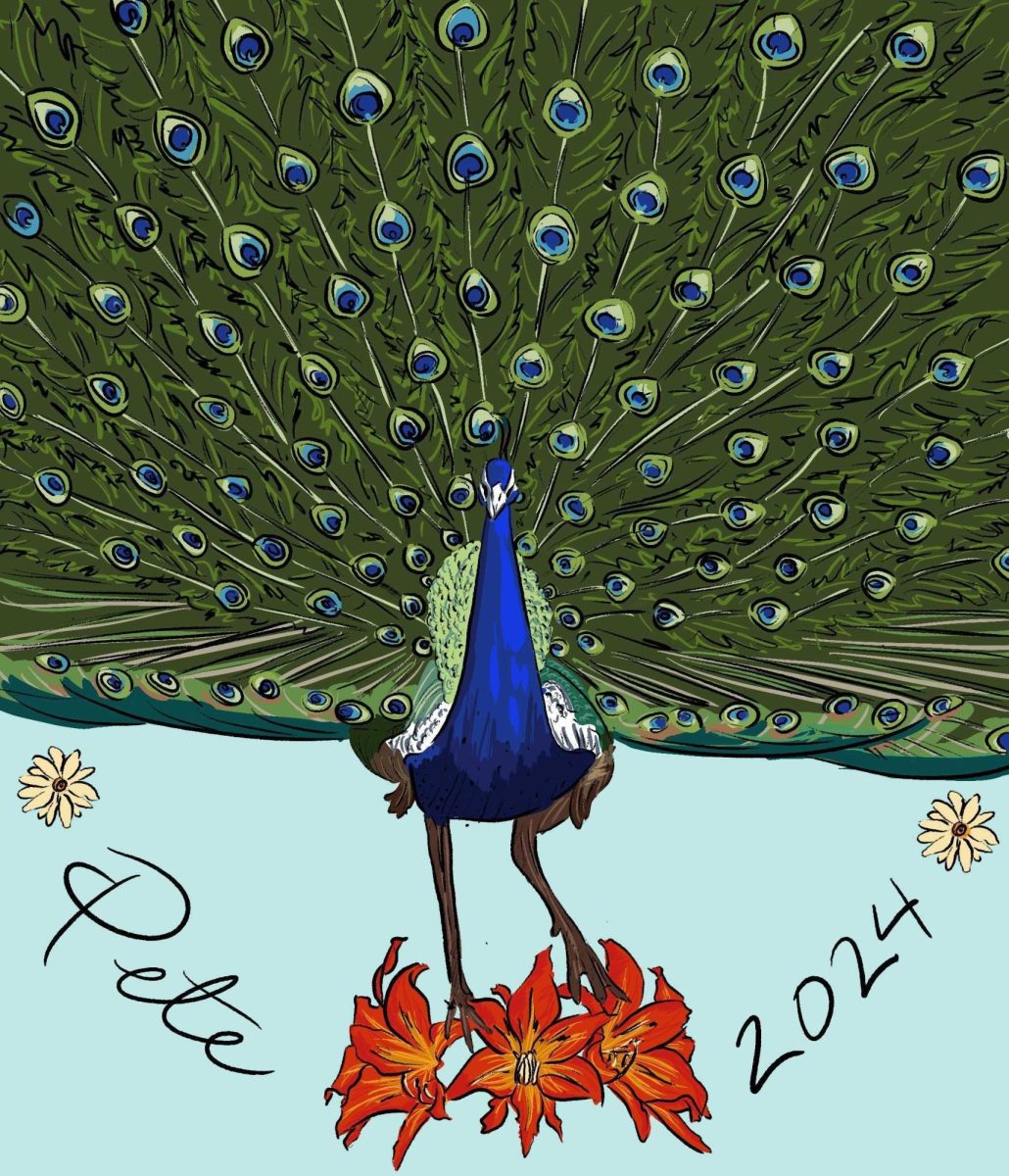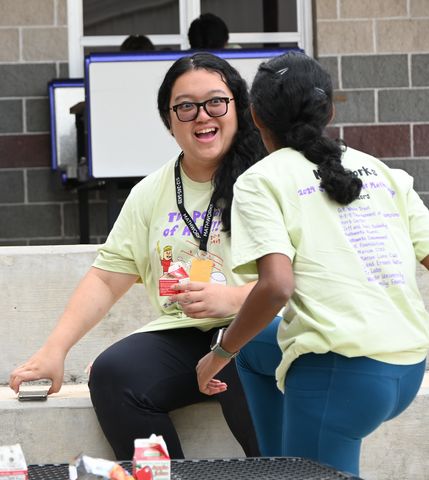Participants gathered at the San Marcos Recreational Center Oct.13 before a 2.5-mile walk to raise funds for the fight against Alzheimer’s in Texas.
Registration for the 11th annual Hays County walk began at 9 a.m. on Saturday at the Recreational Center. Participants arrived independently or as teams and were met with booths from local senior communities and institutions. There was bottled water, granola bars and lively music.
The walk was hosted by Alzheimer’s Texas. The organization provides information, resources and programs for those affected by the disease. It is independent from the National Alzheimer’s Association. Therefore, it guarantees all the funds it raises will be kept in Texas and allocated for local institutions.
According to the Alzheimer’s Association, Alzheimer’s has no cure and goes undetected until approximately 65 years of age. It affects one in ten people, and is the sixth leading cause of death in the U.S.
Alzheimer’s is a buildup of proteins which spreads across the brain, disabling key functions along the way. The Alzheimer’s Association reports, on average, those affected by the disease live around four to eight years after diagnosis.
Chris Johnson Ph.D., clinical sociology professor, instructs America’s first graduate program in Dementia and Long-Term Care at Texas State.
Johnson said he is a part of a growing committee of faculty members in fields like sociology, psychology, physical therapy and engineering concerned with interdisciplinary memory-care research. The ever-growing group is researching the effects of lighting and sleep on memory and its relationship to dementia.
While there is no cure for reversing the effects of Alzheimer’s, there are drugs and medications that slow the process. However, Johnson said he supports the de-medicalizing of Dementia care.
“Overmedication is a problem among older people,” Johnson said. “Being over-medicated is a replacement for boredom and lack of social engagement.”
There are numerous ways to address the rising percentages of those in need of Dementia care other than heavy medication.
In the Netherlands, there is a “Dementia village” where individuals affected by Alzheimer’s or Dementia enjoy ease of access in a normal societial environment with autonomy, privacy and social interaction. The village encourages college students to live in the vicinity to help the residents. In exchange, students are offered free room and board.
Jeff Robinett, hospice chaplain for Kindred Hospice in San Marcos, works with social workers, nurses and hospice aids.
“An important reason to raise awareness is to show that the person who has Alzheimer’s or Dementia is still there, and they still long for the same things we long for: acceptance, joy, laughter and good music,” Robinett said.
The demand for jobs in elder care and occupational therapies is expected to grow 40 percent by 2022, according to the U.S. Bureau of Labor Statistics. This can include careers such as long-term care administration, memory care and human rights careers for issues such as elder abuse.
Barbara Gomez is the director of business development for Hope Hospice in New Braunfels. This non-profit organization offers physical, emotional and spiritual support and hosts support groups for dementia patients.
“Hopefully events like this will raise money to find the cure and promote those medical advancements,” Gomez said.
After the fundraiser, Alzheimer’s Texas managed to raise $8,520 of their $25,000 goal. All of the funds will be donated to Texas in the ongoing fight against Alzheimer’s.
For more information about Alzheimer’s, visit www.alz.org or donate to the Alzheimer’s Texas Hays Co. fund here.
Alzheimer’s Texas walks to raise awareness
October 15, 2018
Alzheimer’s Texas Walk participants return from the 2.5 mile jaunt, Oct. 13.
Photo By Keller Bradberry
Donate to The University Star
Your donation will support the student journalists of Texas State University. Your contribution will allow us to purchase equipment and cover our annual website hosting costs.











